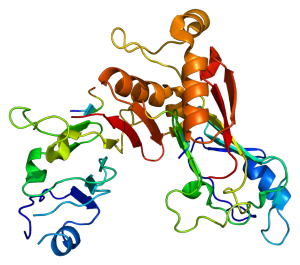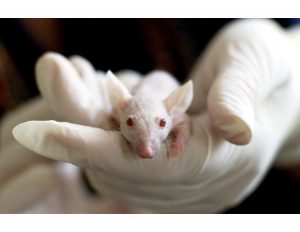A new finding suggests that the protein nup98 found in mouse cells may have another job. This is big in the biology world! Scientists already know this protein helps control the movement of molecules in and out of the nucleus, but they didn’t know it is directly involved in the development of blood cells. After further study, scientists from the Salk Institute found that nup98 enables immature blood stem cells to differentiate into mature cell types. However, this was not even the biggest finding– this differentiation process can contribute to the formation of leukemia!
The journey to make this discovery Salk’s Chief Science Office, Martin Hetzer calls, “combined genomics, proteomics, and cell biology.” It was a complex process at the least. It all started with the Hetzer’s lab focusing on a class of proteins called nucleoproteins (nups), part of the nuclear pore complex, which regulates the space between the nucleus of the cell. Why is this space so important? Because it is where the genetic material is located and the cytoplasm contains multiple important structures! There are about 30 of these proteins and some of them even have functions beyond forming the nuclear pore as transcription factors. Thus, the idea that a protein has more than one function (like nup98) was not a total surprise for the researchers (I still would have been surprised).
Although we know that nup98 has plays a role in hematopoietic (blood) cells, we do not know how yet. That is a question of the future. However, “The investigators found that it acts through a link with a protein complex called Wdr82-Set1/COMPASS, which is part of the cell’s epigenetic machinery.” Wait what do those numbers and epigenetic machinery mean? It is basically just a process that controls when genes are transcribed and when genes are blocked (hope that helped). The other big question is how this study will parallel in primates and humans, but the future is bright.
The continuation of this study in regard to Leukemia is now left in the hands of leukemia researchers, but cancers driven by a single genetic change like this have been proven easier to treat with drugs than cancer driven my multiple genetic changes. Although this discovery is only the first of many, there is hope for an even bigger finding in the future! I am excited to see what research is to follow. What about you?




Leave a Reply